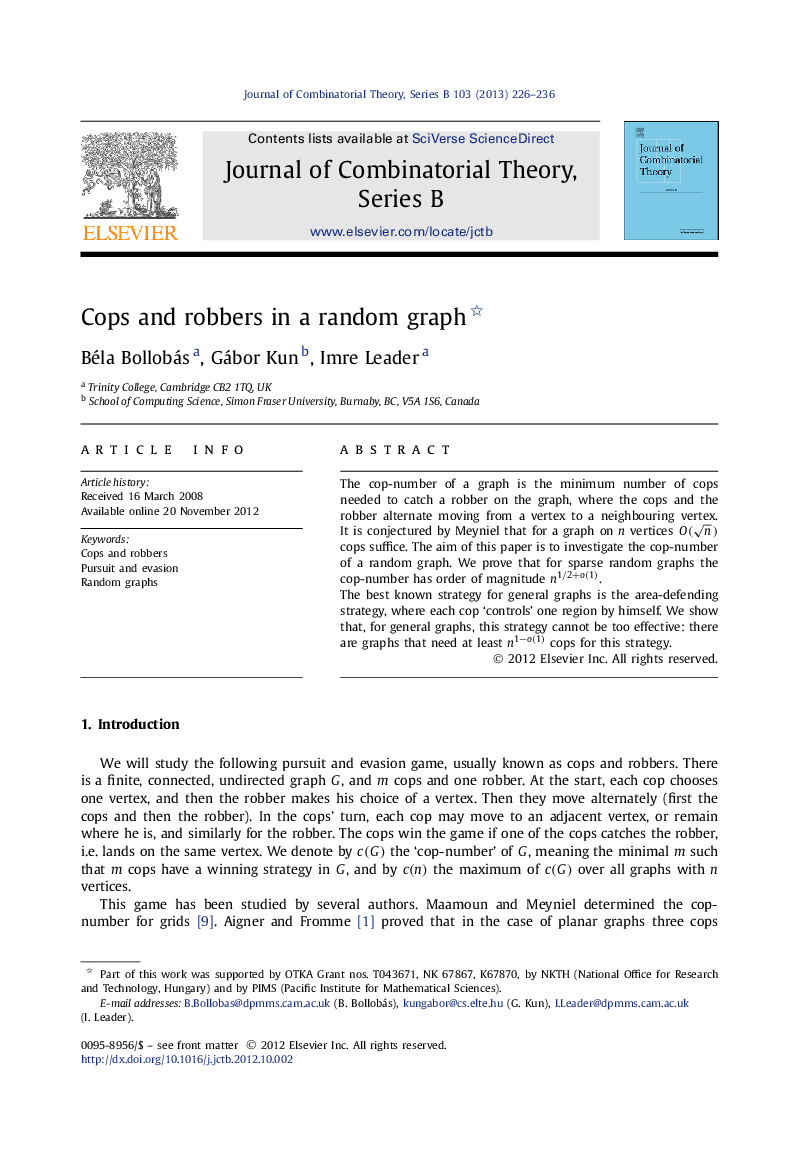| Article ID | Journal | Published Year | Pages | File Type |
|---|---|---|---|---|
| 4656842 | Journal of Combinatorial Theory, Series B | 2013 | 11 Pages |
Abstract
The cop-number of a graph is the minimum number of cops needed to catch a robber on the graph, where the cops and the robber alternate moving from a vertex to a neighbouring vertex. It is conjectured by Meyniel that for a graph on n vertices cops suffice. The aim of this paper is to investigate the cop-number of a random graph. We prove that for sparse random graphs the cop-number has order of magnitude n1/2+o(1).The best known strategy for general graphs is the area-defending strategy, where each cop ‘controls’ one region by himself. We show that, for general graphs, this strategy cannot be too effective: there are graphs that need at least n1−o(1) cops for this strategy.
Related Topics
Physical Sciences and Engineering
Mathematics
Discrete Mathematics and Combinatorics
